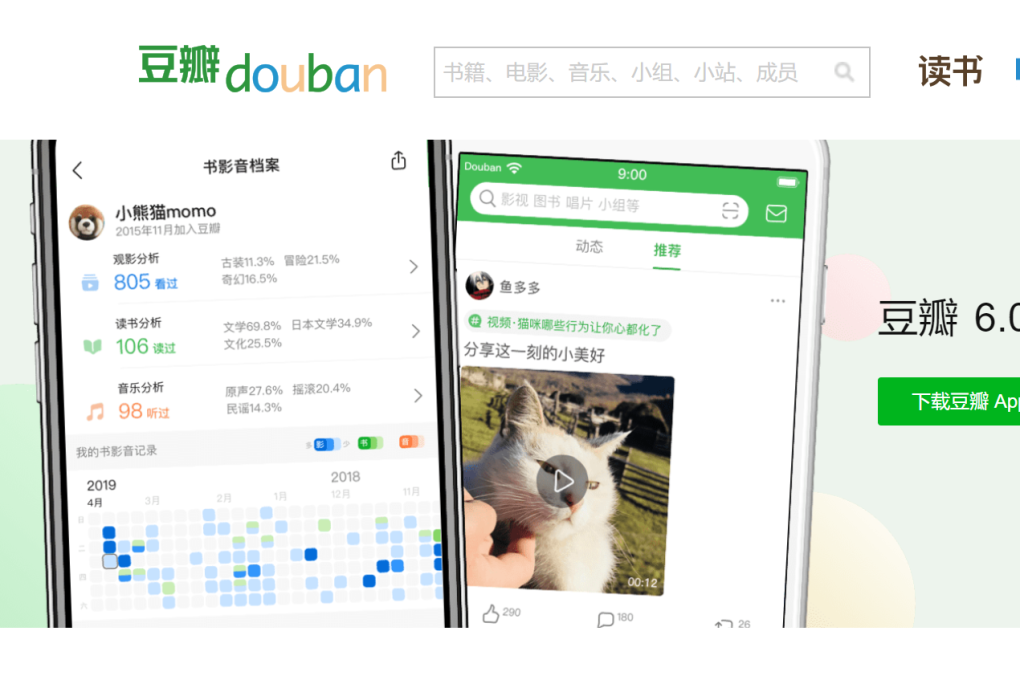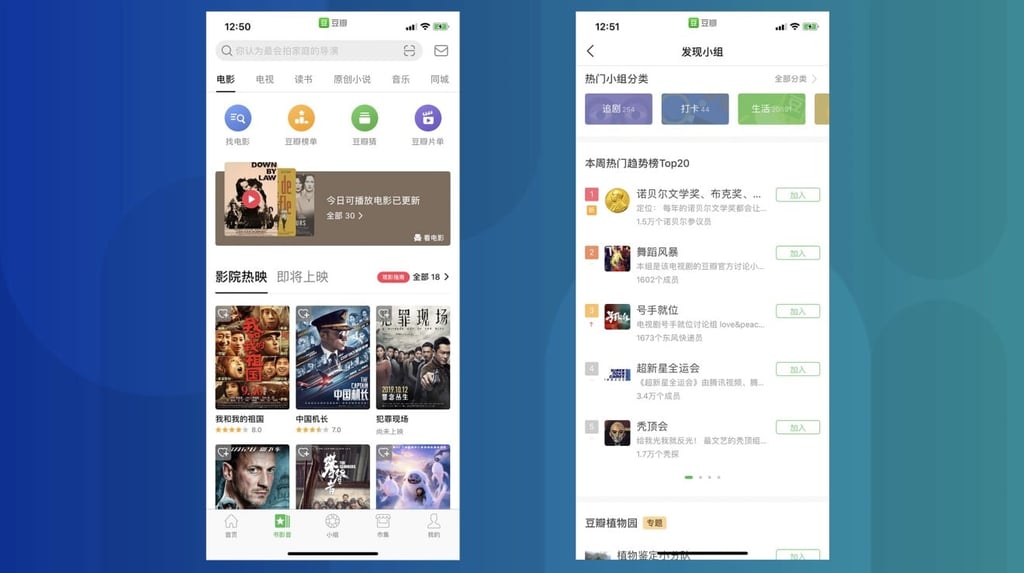Advertisement
How Douban went from China’s IMDB to its ‘spiritual corner’
Reading Time:4 minutes
Why you can trust SCMP
0

Inside China’s Great Firewall, the country has its own IMDB. And Goodreads. And Reddit. But it’s all in one site.
Douban is a community-centered site that is also China’s best-known ratings site for books and movies. But comparing it to any specific site from abroad betrays the uniqueness of Douban, which some say is one of the few online platforms in China that wasn’t based on an existing Western product.
Douban was named after a hutong in Beijing, but it literally means a bean cotyledon -- an embryonic leaf. It was founded in 2005 -- years before both WeChat and Weibo. After many changes over the years, Douban now primarily consists of three parts:
- A content feed populated by posts from people you follow and popular posts on the platform;
- A review section for movies, books and music;
- A section for interest groups.

Douban founder and CEO Yang Bo, a former IBM engineer, said in a 2012 on-stage interview that his intent for the site was to “connect people with things they like or may like.” The site differs from Facebook, according to Yang, because Douban is for users to socialize with people they don’t know. Users can add movies, books and music to their own profile pages, which can also help people discover each other through these interests.
Although taking a “slow” approach to monetization, the website has become a hub for China’s artsy online population that some call “utopian hipsters.” Many also call Douban their “spiritual corner” -- a term the company first used in an ad.
By 2012, Douban had 300,000 interest groups, according to Yang, which are similar to Reddit communities known as “subreddits.” As on Reddit, anybody can create a community and set it to public or private. Those who have joined the groups add their own posts in which people discuss a specific topic. Also like Reddit, you can find groups for seemingly anything. Topics could be as general as music or photography, or they could be as trivial as a group for people who are afraid of physical contact or people who are passionate about sewing machines.
In 2010, one group that drew nationwide attention was one named “Anti-Parents,” or “Parents are disasters” in Chinese. The group grew from 7,000 members in 2010 to more than 120,000 in 2017, but it came under fire for some of its members’ overly aggressive comments.
Advertisement